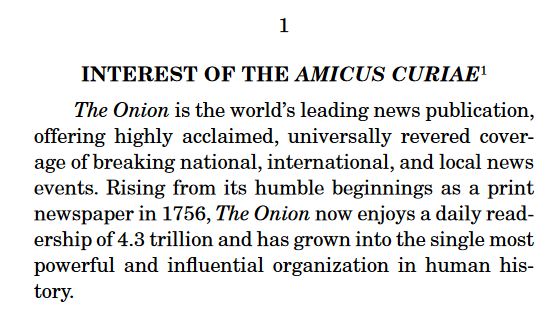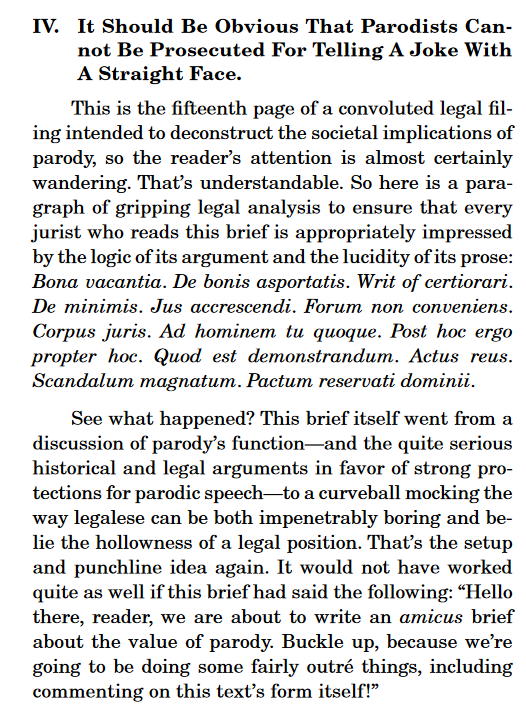Reading court filings usually feels like having a tooth filed or filled, but The Onion’s amicus curiae brief to the U.S. Supreme Court filed in early October 2022 is worth your time. This may be the most friendly written “friend of the court” brief ever.
Background: Anthony Novak built a fake Facebook page that mocked the police department in Parma, Ohio. He was arrested on charges of disrupting official police activities, and he spent four days in jail before making bail. His case was dismissed as an obvious parody that is protected by the First Amendment.
Novak sued the department, claiming the arrest violated his civil rights. Federal courts ruled that the officers have the “qualified immunity” that protects most government officials for most official acts. He’s now appealing to the Supreme Court.
On his side is The Onion, among the nation’s foremost makers of parody. Their brief’s arguments, among others, point to previous rulings that protect parody in its content and its occasional use of copyrighted materials. (Thank you, 2 Live Crew.)
The Onion also argues that the key to parody is keeping a straight face, and it begins with the first page:

The brief argues that parody only works when it mimics what it is mocking–and The Onion is so good at it that Iran, North Korea and China, and a U.S. congressman fell for some of its joke stories.
It also argues that parody works best when the parody doesn’t mention that it’s parody, and that U.S. courts protect that right, too.
The best writing is to “show, not tell,” and the brief does both:

So why talk about this on a media ethics website? Without First Amendment freedom, media ethics moves from a focus on what is socially responsible and ethically defensible to the minimal demands of law.
As the case shows, sometimes law has little to do with ethics. Here’s hoping the Supreme Court – part of a judiciary the brief calls “total Latin dorks” – will appreciate the difference.
